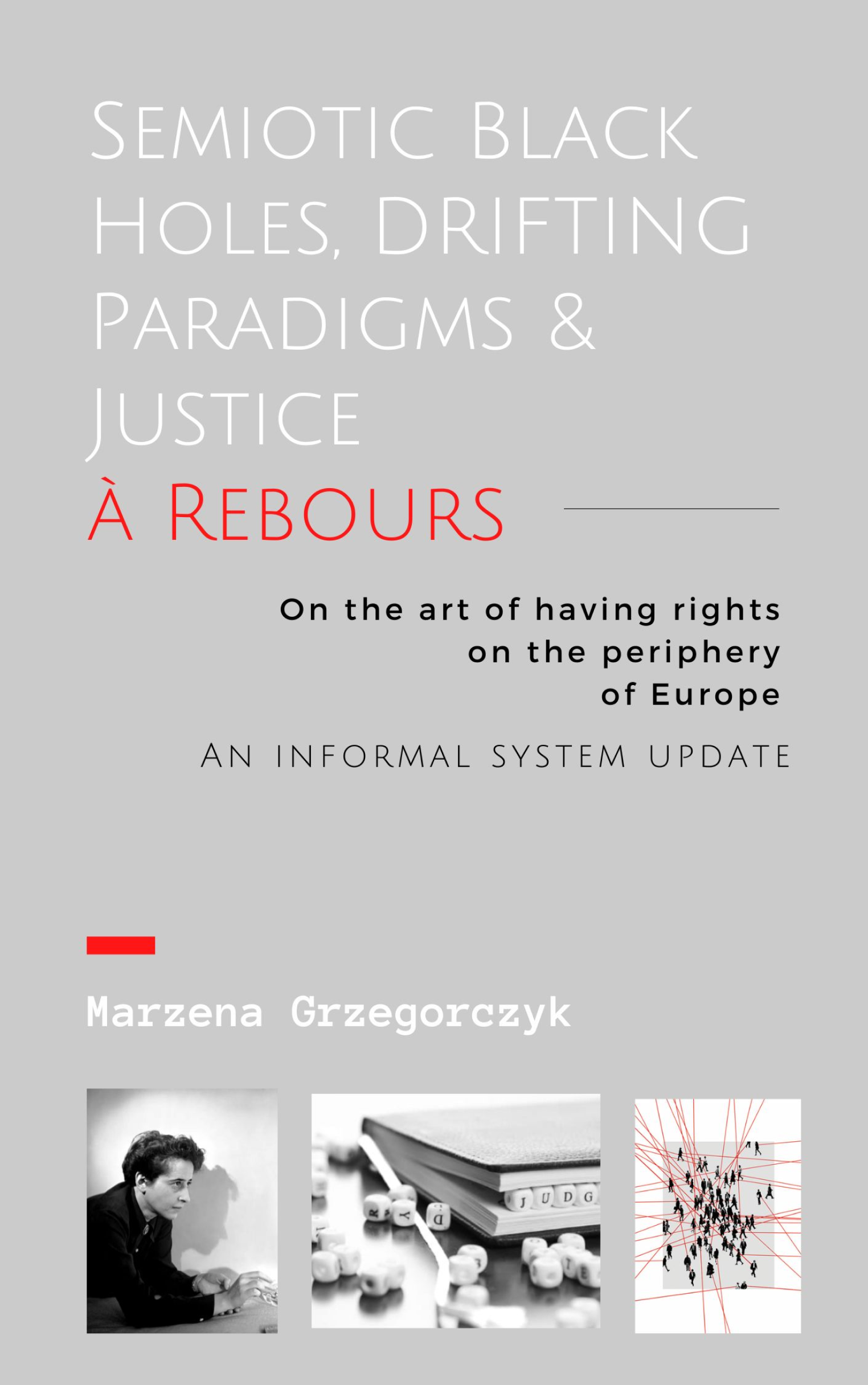 Semiotic Black Holes, Drifting Paradigms & Justice À Rebours. On the Art of Having Rights on the Periphery of Europe.
Semiotic Black Holes, Drifting Paradigms & Justice À Rebours. On the Art of Having Rights on the Periphery of Europe.
(book in progress)
This is an intellectual thriller, a detective story about how truth disappears from the court of law. At first, this idea seems counterintuitive to the normal mind, as truth, by definition, is considered universally the main instrument of imparting justice, not its byproduct. Any departure from this norm cannot be logically sustained. It seems odd, perplexing, and quite exotic: what should anchor our collective efforts at truth-seeking more forcefully than the courts? That feeling of strangeness is where the story begins. The rest is a riddle, filled with intrigue, plot twists, suspense, and a rare, somewhat anachronistic, brand of horror.
It is a tale of inverted justice, written from the vantage point of the courtroom, where facts and meanings are supposed to be patched together into an organic and coherent whole. Its narrative spine is formed by a close-up of two people and their life stories, stories that—to all appearances—got swapped by some bizarre power. What power?—we ask. Even at its highest peaks of abstraction, the answer to this essential question is rooted in actual events. Sometimes, it borders on satire, even if nothing is intentionally satirical.
The story is set at the edge of Europe, in Poland, a post-communist country located between Germany and the former Soviet empire. It’s common knowledge that Poland, albeit nominally democratic, has a judiciary that imported not only its constituency but, more importantly, its mentality and instruments from the pre-democratic era. Yet no one has shown what practical effects it has had on people’s lives and their collective safety. The continuity refers not so much to the age of the judges but to the ways in which almost all aspects of the old legal culture have been reproduced. The result is a mess, a system aptly defined by a Polish poet, Michał Rusinek, as a Russian draped in French clothes.
We “undress the Russian.” We find ourselves in the midst of an intellectually humiliating struggle against lapsed responsibilities and degradation of thinking. We witness a spectacle that tries to justify its own narrative incoherence. Reminiscent of the Conradian trip down the Congo River, we keep sinking into a semiotic black hole filled with cruel impromptu zigzagging between explicit guarantees (after all, we are in Europe) and hidden assumptions (what Europe?). The system is immune to any introspection. What started as a parable of unrevised assumptions has morphed into a map of collective vulnerabilities.
This story is a crime drama in its primary sense: it shows forces at work that were not known to us. It’s an epic conclusion to the myth of “Solidarity”, as it proves that the never-ending transition from communism to democracy has left a society stuck in an improvised waiting room. Exposing the dangers of oversimplified narratives, it speaks not to one generation but to the entire post-Cold War epoch. With its redemptive realism, it’s a giggle of history. Twisted, hard-hitting, and clean.
The only possible metaphor one may conceive of for the life of the mind is the sensation of being alive. Without the breath of life, the human body is a corpse; without thinking, the human mind is dead.
– HANNAH ARENDT



